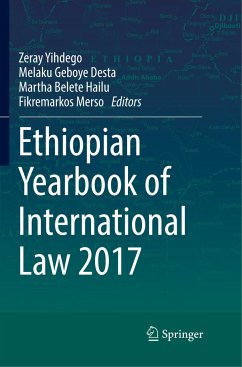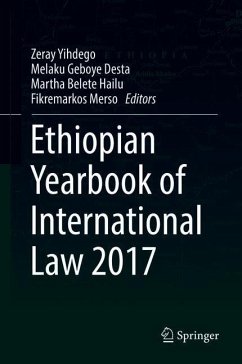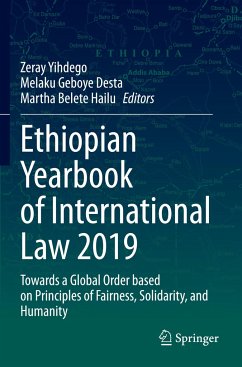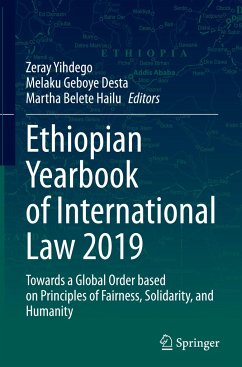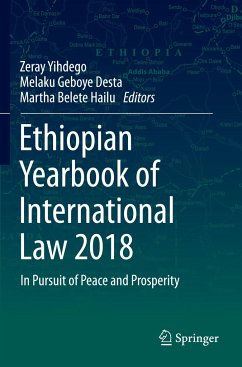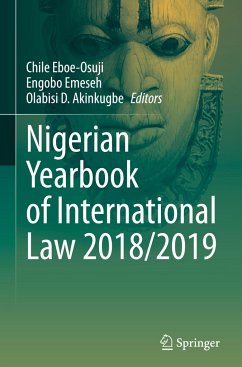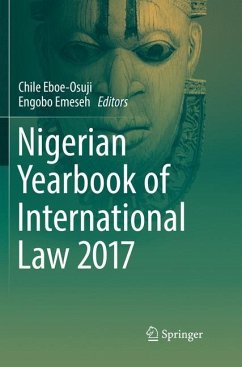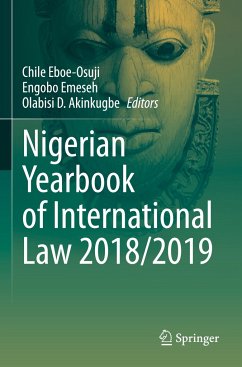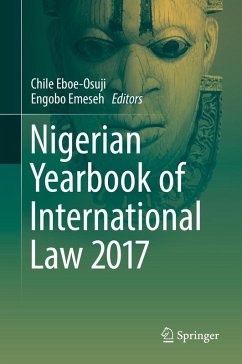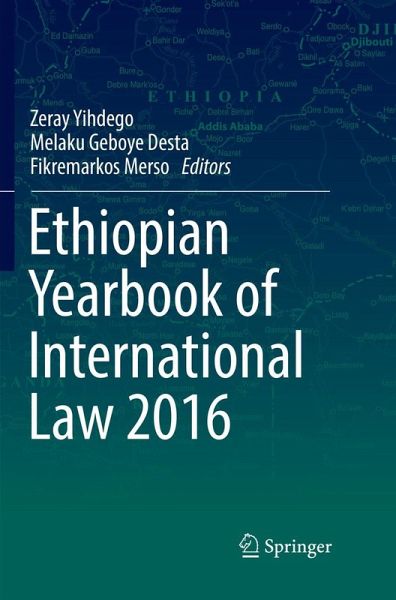
Ethiopian Yearbook of International Law 2016
Versandkostenfrei!
Versandfertig in 6-10 Tagen
76,99 €
inkl. MwSt.

PAYBACK Punkte
38 °P sammeln!
This first volume of EtYIL focuses on issues concerning the developing world in general and (the Horn of) Africa - and Ethiopia - specifically. It argues that rebalancing the international law narrative to reflect Africa's legitimate interests is an urgent priority, and can only succeed through the fair representation of African countries in the creation and interpretation of international law.The book begins by reflecting on the ICJ's West African Cases and provides a unique perspective on decolonisation as a source of jus cogens and obligations erga omnes. This is followed by a comprehensive...
This first volume of EtYIL focuses on issues concerning the developing world in general and (the Horn of) Africa - and Ethiopia - specifically. It argues that rebalancing the international law narrative to reflect Africa's legitimate interests is an urgent priority, and can only succeed through the fair representation of African countries in the creation and interpretation of international law.The book begins by reflecting on the ICJ's West African Cases and provides a unique perspective on decolonisation as a source of jus cogens and obligations erga omnes. This is followed by a comprehensive analysis of the reception of international law in the Ethiopian legal system, and of the potential implications of Ethiopia joining the WTO. The book then delves into such topical issues as the relationship between competition for natural resources and international investment law, the UN Global Goals and the fledgling international climate change regime, with particular emphasison the Paris Climate Agreement and their implications for developing countries. Further issues include the Declaration of Principles on the Grand Ethiopian Renaissance Dam signed by Ethiopia, Sudan and Egypt in light of Nile colonial treaties and contemporary international watercourses law, as well as selected legal implications of the armed conflict in South Sudan. Gathering high-quality scholarship from diverse researchers, and examining a constellation of critical international law issues affecting developing countries, especially African countries, the book offers a unique resource.



